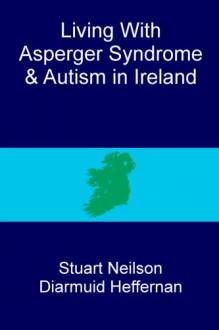This book is for people with autism spectrum disorder, from adolescence to adulthood, and for people who wish to understand the experience of living with autism in Ireland. You are probably reading this far because you have been diagnosed with a label on the autism spectrum, suspect that you may...
show more
This book is for people with autism spectrum disorder, from adolescence to adulthood, and for people who wish to understand the experience of living with autism in Ireland. You are probably reading this far because you have been diagnosed with a label on the autism spectrum, suspect that you may have some degree of autism or have an interest because you live with or have a friendship with someone who has, or might have, an autism spectrum disorder. The term ‘autistic’ in this book refers to all people with autism, whether with Asperger syndrome, high-functioning autism or any other position on the spectrum. The important criterion is that the issues in your daily life relate to the issues discussed here — within the book we use the term as little as possible, just as humans exploring the moon or the ocean depths would not discuss the ‘problem’ of being human in those environments.
Why specifically “in Ireland”? Because this book is about life, not about autism, and we want to refer to the services, bureaucracy, social settings and other influences that create problems in everybody’s life. A lot of this is very specific to the country we live in and the organisations that we have to deal with.
We also try to gather, in one place, a comprehensive reference to relevant organisations, charities, services and resources related to autism in Ireland. This includes a broad selection of books, websites and other places where you might seek more information, and refer to these where relevant in the main text. We have included our own reviews of fictional accounts of characters on the autism spectrum in film, television and books — you may find some characters you can identify with and others who are plainly nothing like you, and might use them to open up conversations about your experiences with friends or partners, or simply keep them as personal role models.
This book fills a niche not currently served in that it provides practical advice for people on the autism spectrum in an Irish context.
show less

